Professor Winnie V. Mitullah is a Research Professor of Development Studies at the Institute for Development Studies (IDS), University of Nairobi. She is also UNESCO UNITWIN Chair. She is a Doctor of Philosophy (Institute of Advanced Architectural Studies, University of York, UK), a Master of Arts in Political Science and Public Administration (University of Nairobi, Kenya) and a Bachelor of Arts, major in Political Science and Public Administration (University of Nairobi, Kenya). Here she discusses her professional life with CCG’s Peter Allen.
Tell us a little about yourself please, Winnie
I was born and raised in Nairobi and a lot of the work I’ve done is very much related to my lived experience and what goes on around me. All the way back when I was an undergraduate, I got very interested in Urban Development and when I got to my masters, I researched urban housing, focusing on the upgrading of informal settlements, and that got me into the Academy. With my growing interest in academia, I focused on housing policy for my PhD in an attempt to assess whether the challenge of housing the urban poor was a policy or program issue.
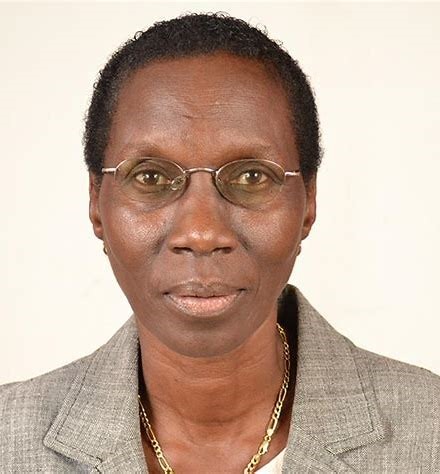
I’ve continued to be in development research located at a multi-disciplinary institute which is the Institute for Development Studies of the University of Nairobi. Being in a multi-disciplinary institute provides a good platform for working across disciplines. I work with engineers, economists, sociologists, planners, and computing and informatics. This is because in my world of work I focus on policy, institutions and governance, and these are development aspects that touch almost every discipline and sector.
I see. I know that multi-disciplinary approaches are much more useful in the climate context, so that’s good to hear.
At university level I teach and do research. I’ve been very engaged with transport research for almost 20 years now, as part of Urban Development, looking at issues like governance, and informal transport like paratransit and motorcycles. I have been mentoring students by including them in my research work to build a constituency of transport researchers, because we realized that there are very few people in transport research. It can’t be left to engineers alone because transport is something that is very multidisciplinary and, of course, involves people as well as infrastructure. I’m very glad that 10 to 20 years down the line, we are now seeing sociologists and political scientists among other disciplines getting into transport studies.
I keep engaging with several actors from across the region and globally, and also with several international agencies like UN habitat, UNDP and UNEP. At one time I chaired the UNHABITAT Advisory Board on Human Settlements.
What has your experience been as a woman during all of that change?
I do argue that you reach a stage where the gender thing gets lost. However, as you go up the ladder, you see fewer women at the top. Maybe it’s the reluctance of women to put themselves at the top table. Like if a Vice-Chancellor’s position is advertised at the University of Nairobi, I have to decide that I want to be a Vice-Chancellor and put my application in. No one will suggest it to me.
We have many cases where women are able, but they’re not applying for the top roles. Some say that the enabling environment doesn’t exist. Others say that it is more about the responsibilities we bear, and the stress that getting into higher levels will give us in terms of more responsibility. The opportunities are there, but sometimes women are reluctant to take them for so many reasons like being a young mother, though that is just one variable.
Yes, but, but do you feel that the environment is in place in terms of being open to applications from women for those roles? Is it a receptive one?
Yes, it is open. But if you were to do some research, you will find that there will be few women who have applied so the question is “what is making them not put their applications in?” Again, you can’t generalize this as it changes for different types of women at different stages in their lives.
Sometimes it’s the fear of the arena, you know, that governance arena can be very mucky and that keeps women away. Perhaps we are a little bit shy to dip our feet into the hot water as compared to men for whom it doesn’t matter; they can just dip in, and succeed or fail.
Yes, but I suppose unless women do get into the murky waters, they’ll always stay murky.
Exactly. Women need to be encouraged to get out of that cocoon and step into the murky water because the policies are in place, the enabling environment is already created. At my university we are talking about creating safe spaces for women. We are planning to have a new Engineering and Science Complex building that will be very women friendly. It will have a creche to support working women. So you can drop off your child, go to the lab, not worry if you’re a little late, pick up the child and get home with much less stress. It takes a while for women to also feel that it’s an environment for everybody. It’s one thing to say it and another to enable it through legislation, and yet another step for women to take it up.
Forgive me. I’m a little bit surprised that you are talking so positively about the opportunities for women. Many women in this series have said how hard it can be when transport and a lot of climate-related areas are so male dominated. Would you say that the situation you’re describing is across Africa or is Nairobi leading the way?
The policies are there so that area is very positive. If you get into who is currently in the field, for example in transport, they are predominantly male though this is changing. If you go into our engineering department compared to when I was young, there are now many women. When I was a student, we only had two female students taking engineering. I also coordinate a World Bank programme that takes students from engineering, economics, planning and computing and informatics for nine-month internships. I get the best students from participating departments, and it is amazing that in engineering, economics and even planning, for the last five years or so, the students who are on top are largely females. I should say that I do affirmative action for the males to get on top of the nomination list.
High level decision making is still predominantly male. We are beginning to have females in it, but in the real elite areas like engineering, few women are at the apex.
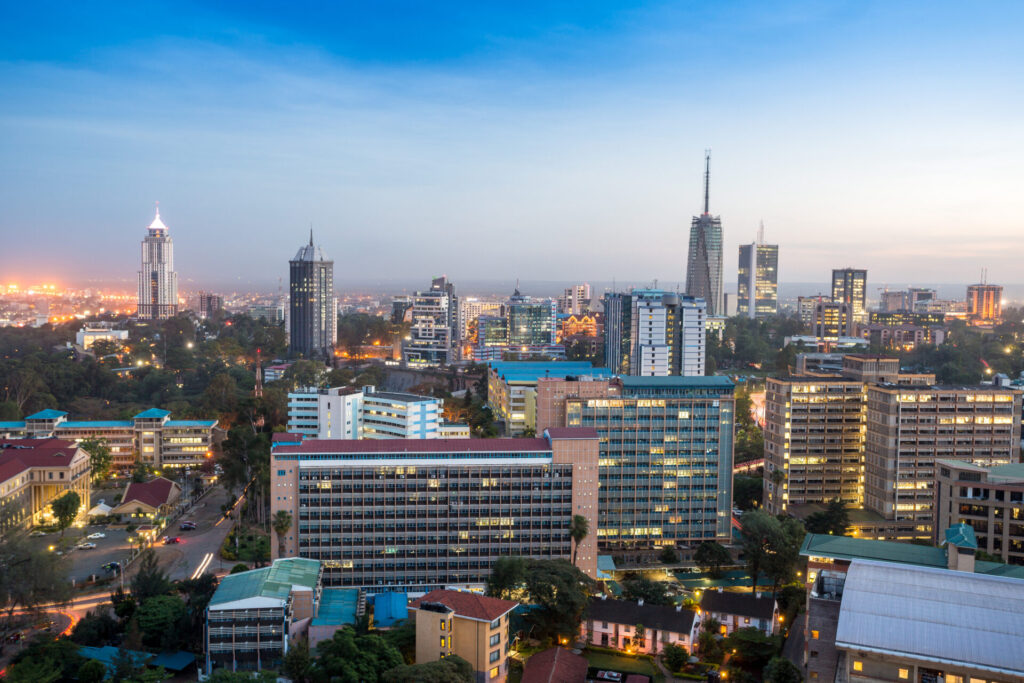
So it’s changing positively which is great to hear.
Yes, and for the first time, I think, this year we have a woman who is heading the Association of Engineers in Kenya. All these years, there has never been a chair who is female. It’s changing slowly.
Do you think that the slow pace of positive change will get in the way of addressing climate change in time?
Yes, I think it might because when you look at the people who are activists, because they are most exposed to the effects of climate change, you have quite a number of women but they are not holding high positions.
I would suspect that going forward we will see more women in climate change because there are a lot of empowerment campaigns to get women actively engaged. And in some countries like Kenya, it is a constitutional requirement to have two thirds of an organisation made up of women. It’s the law. Our Parliament has not achieved it yet and at one point in the last five years they were almost going to shut down for not fulfilling the requirement. However, this has not happened, and the gap remains, demonstrating an inability to fulfil a constitutional gender rule requirement by one of the three arms of the state.
So there is quite a lot of change. I like the fact that climate change is now better understood. 15 or 20 years ago the climate change concept was very abstract. There is no direct translation of climate change and during research we had to explain to people what the changes that were impacting them meant.
An example from some years back that we joke about is if you wanted to cook, you just walked a few steps behind your house into the Bush and picked some pieces of wood. Now if you’re cooking in a rural setting, you just can’t do that at all. You either have to go and buy that firewood or use another type of fuel. With rivers too, people are looking at the rivers they saw continually flowing as children and now they are no longer flowing. Or they’re shocked when flooding makes water appear in places they’ve never seen water – like their back yards.
Climate change is manifesting itself in a way that we have waited too long to see, but now it is telling us what it is through these manifestations of it.
How do the interests of big business affect the level of action on climate change in your country? They seem to get in the way of climate change generally.
Definitely, businesses are in the equation. One example is in the rail sector in Kenya where the influence of business got in the way of progress. In Kenya’s attempt to shift cargo from road to rail, investors maintained that they had bought their heavy-duty trailers and hadn’t yet paid off their loans. They did a lot of lobbying to ensure they could still use heavy duty vehicles for cargo on roads. This has resulted in standard gauge railway carrying only passengers when it was intended to also carry freight and take it off the road.
The fact that goods are still transported through roads using dirty fuel is causing air pollution and road safety crashes. This is an example of how the interests of business have blocked better transport options for goods.
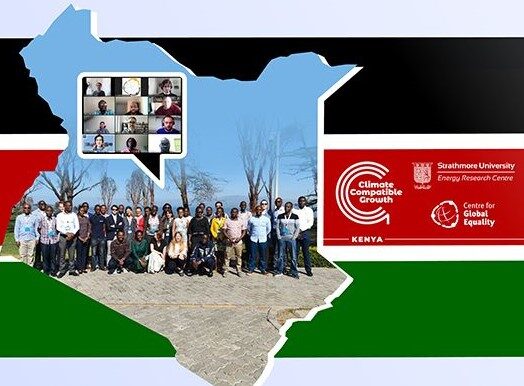
Another example is the Nairobi Expressway where a lot of trees had to be cut down because it went through a park. There were lots of protests from civil societies, which was great to see, but they did not succeed in the end and the trees had to go. I am pleased that people are now able to voice their objections and I believe that that will continue. Of course, I must say that there are also businesses that have become very sensitive to climate and are really trying to be on the right side with climate issues to the extent that they go a little bit out of their way to support climate mitigation measures.
In Kenya we had contestation over the use of plastic bags, which were eventually banned. Businesses fought to keep the plastic bags without success. One particular plastic is common in Kenya because it’s so flexible – it can carry all sorts of domestic shopping including liquids, and there seems to be no biodegradable alternative for it. Unfortunately, since plastic is not banned in neighbouring countries, plastic still finds its way into Kenya, although the quantity is very low. We no longer see the huge plastic waste which was a common site along our roads, neighbourhoods and in drainage ditches and rivers.
So I guess they would need to look at other things like recycling that plastic. Now let’s talk about the work that you are doing with CCG.
Yes, we’re working on electric vehicles. We have finished the field work and now we are at the stage of writing up. Last week I was reviewing the government draft policy for EV’s which is already quite advanced, and the situation is quite good for EV’s.
One challenge is that the private sector is always ahead of the government. There are many pilot schemes on EV’s, and some programmes are already running, supporting two-wheelers, for example, and some buses plus new hailing apps.
Society is embracing EV’s although we still have range anxiety and the limitations of charging infrastructure, so hybrids are preferred right now.
We see government policies being drafted, but the practice is running ahead through the private sector, so by the time you put the policy in place, there are things you need to review. The private sector is not sleeping – they’re very proactive.
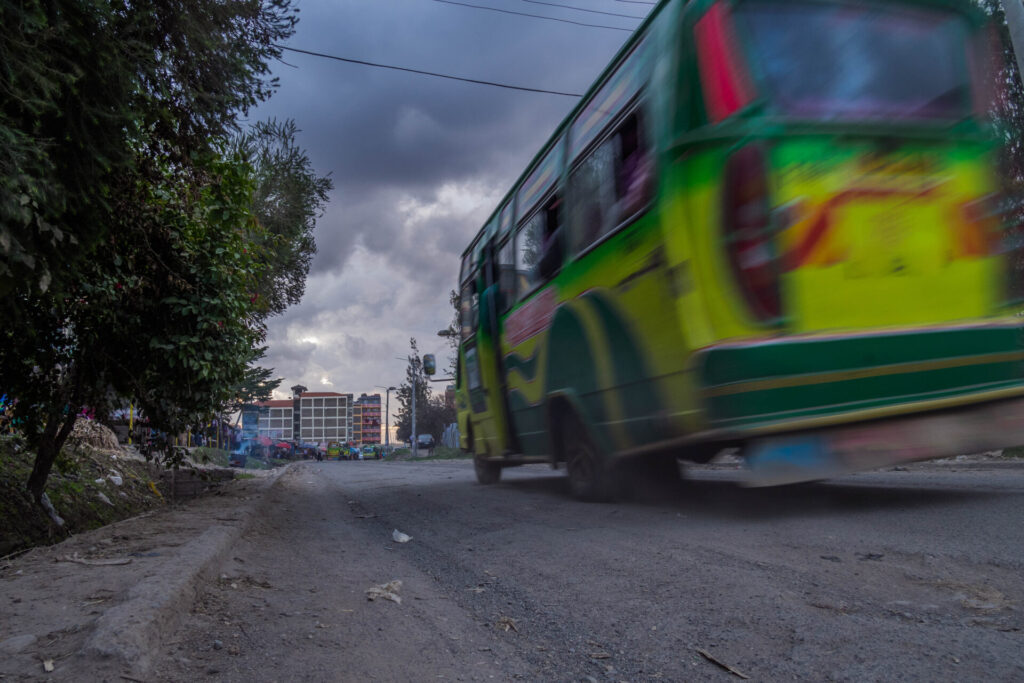
What is the balance like between cars and public transport because, clearly, mass transportation is more efficient in terms of emissions?
Our mass transit has really been back and forth. We’ve been talking about having Bus Rapid Transit (BRT) for almost the last 15 years. Many appraisals have been done, but Kenya is still to roll-out its first BRT line. Five BRT routes have been proposed, with some being prioritised but BRT is still to become a reality. So far what comes close to mass transit is a rail service that operate a few routes within the metropolitan Nairobi. I argue as a scholar that probably we are conceptualizing mass transit wrong, going for the gold standard, when we can build on what we have – the dominant paratransit minibuses.
We conceptualized it in the context of paratransit, because our paratransit used to be 7-seater, 14-seater, 25-seater, with some having higher capacity. Our problem is that we want to pick the gold standard BRT and that desire pulls us back and delays us. BRT is a huge investment with very many components, which require leveraging on partners for resources. We’re caught between having the best BRT and choosing to evolve from what we already have.
Yes, evolution is more sensible than revolution but maybe not as impressive.
Yes, you are very right. Then you don’t threaten those that are already providing a service.
The two-wheelers (both electrical and non-electrical) are a double-edged sword because although they are popular, they are very dangerous. They’re becoming the primary transporter, especially in rural areas. They compete with the other public transport, but they are causing deaths because the riders are so reckless. But businesses are investing in them by producing EV two-wheelers. Both businesses and governments are beginning to provide support systems, including infrastructure for EV’s, largely in response to climate change.
Of course, you can say that Africa will always have a hybrid system of transport, but I think going forward we will want to put more of our efforts into mass transit, especially with the climate change debate, including global support for compact development of cities.
Is the use of cars instead of mass transport a cultural or gender choice? Sometimes people feel that the ownership of a car indicates wealth, freedom, status, whereas queuing with everybody else to get on a bus indicates something else in some people’s minds.
It’s viewed as low status, but very few people have cars in cities and towns in Africa. The majority rely on the paratransit modes of transport that are dominant in African cities. This implies that the majority of the population need mass transit but we still have a mixed picture, in which governments are promoting hybrid systems of public transport. In recent years the hailing applications are becoming popular, especially with the elites, but the question remains whether moving people from personal cars to hailing apps makes any difference in the climate change debate.
So, like you said, that’s why you need a multidisciplinary approach including psychology, marketing, sociology and so on.
Exactly, yes.
In the whole approach to climate crisis in your country what are the areas in which you would like to see more progress?
I think that sometimes climate change issues are either trivialized or made too simplistic, like when people emphasize things like planting trees over more impactful actions. Trees are being planted, but sometimes the species are wrong for where they are planted so they don’t thrive, they clash with traditional urban landscapes, or become a nuisance and have to be cut down.
Another professional I interviewed, said that in her experience there are still many people who don’t believe climate change is real. Do you think that’s the case in your country too?
Yes. I think perhaps when people have an education, they understand that it is real and think of it in terms of the overall concept of ‘climate change’. But at other levels, people may notice things like changing rain patterns, floods or increasing temperatures but they don’t call that climate change because they’ve not directly experienced any of the other factors and don’t view it that seriously. This notwithstanding, the intensity of the change of weather patterns is becoming a reality to many people out of experience.
You strike me as a very, very impressive person and I’m full of respect for you and what you’ve achieved. Who have been the people who have helped you make your way to where you are now?
I think my parents and in particular my father made a difference because, for example, with gender, I grew up not knowing about gender at all. In my family we were five boys, five girls, and we were treated equally, you know, my brothers cooked, they cleaned, we all mowed the grass in the compound, we washed my dad’s car. You were just assigned jobs, irrespective of gender. Education irrespective of gender was prioritised in my family, with girls being favoured when it comes to personal needs.
I didn’t really grow up knowing gender until I went to a boarding school and then I was being told to do things like a girl – “you’re not walking like a girl! Walk like a girl”, you know. The teachers were so insensitive and did not even know they were harassing me because I didn’t know how to do things like a girl or like a boy. I just did things the way we did things at home. My father was working in the educational sector, and he really valued education and was very encouraging. And he gave us space. You could go out, but you had to be responsible. We did things, we were left to think, and taking into consideration the values that had been imparted while we were young. I think we grew up very differently from many others in that early time because of my father. In conventional contexts, girls were treated differently, and almost held back with no space for themselves. But we grew up with a lot of space in my family and we were encouraged to speak with confidence, face people and do not look intimidated. We had to do this all the time at home while talking with our parents.
A lot of learning I got from my dad and, later on, we had our teachers at high school level. I think I also had some very good teachers. One ended up leaving high school and coming to my university. Professor Hellen Mwanzi was very good, teaching us Drama and English in high school and really building confidence, not just in what she taught but in the way she carried herself, sometimes coming to our level to understand us better. She became somebody we could admire and we wanted to be like her, you know?
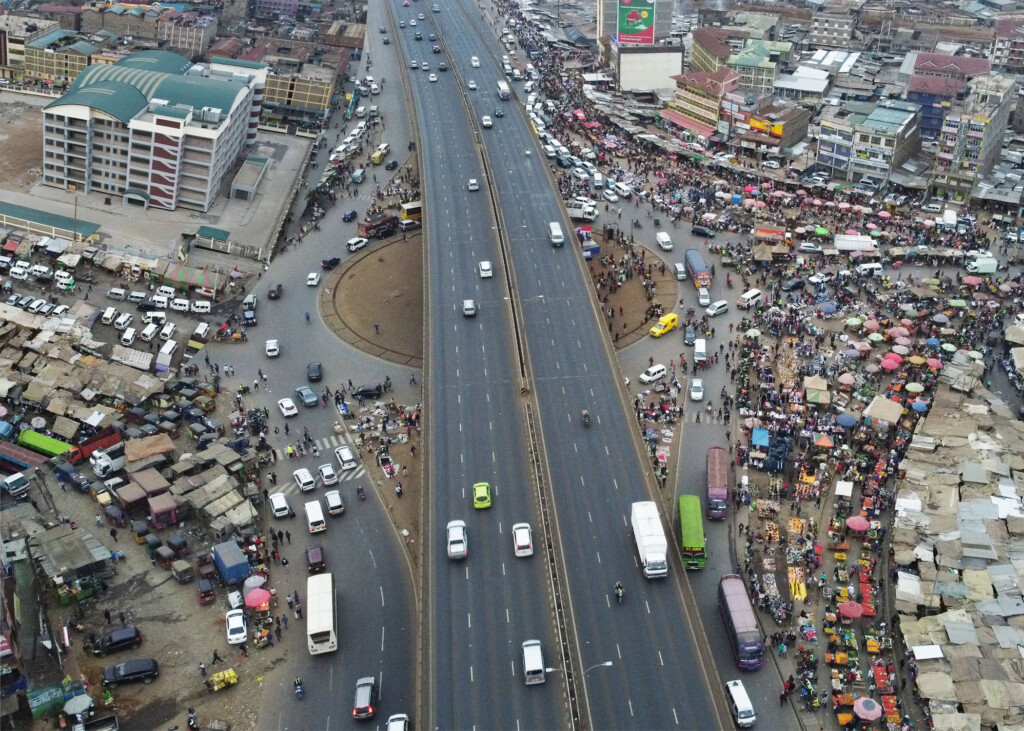
I see.
Then we came to university, and we found people like Prof. Governor Anyang Nyongo, who is now a Governor of Kisumu County in Kenya. He taught me in first year university, emphasised the need to be reflective, thoughtful and bold as we read various recommended political science books. He would get us to interact with the concepts of political science beyond mere reading and consuming knowledge. So, my role models are not people outside my environment whom I don’t know, or somebody else outside my context; my mentors are people I admire who have been within my environment. Later in academic life with global connections, my mentors such as Prof. Emeritus Richard Stren of the University of Toronto and my peers across the globe have been very useful in my academic and professional life.
That’s great
Yes, I was lucky to interact with mentors right from secondary school to high school.
Mrs Buckley was a British lady who was the head mistress of our high school, she was very, very good. She taught us to be good human beings and to interact and to be open and honest.
Are you positive about the future for the climate? .
The future of the climate worries me because it is really a big issue. I don’t think the majority of us know how big it is. We are still to really understand, for example, the floods we just had in Kenya are only the beginning. It’s interesting though, up to now we always thought that it was the poor whose houses could be swept away by floods. This time around, the elite in their most elegant homes, have water up to the roof and they have had to move out. So it is very clear that we need to be very concerned about climate change.
And I think that the way we interact with climate change at an individual level, is still a bit casual. A few people – real advocates – are not handling it casually, but ordinary people are. I think we still have to do a lot for people to become aware and to start contributing towards protecting the environment and directly engaging in climate mitigation measures.
Thank you so much, Winnie. It’s been a real pleasure speaking to you.
